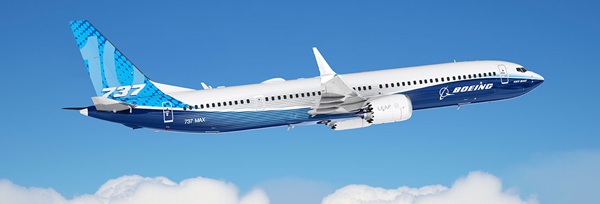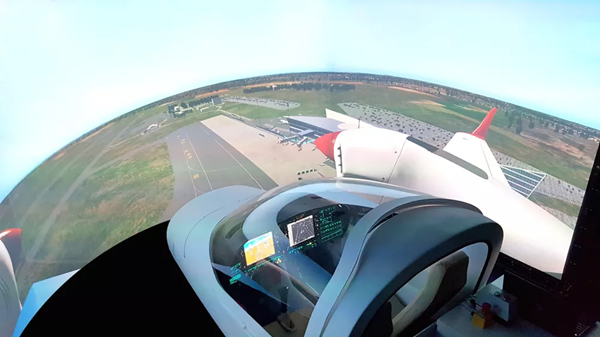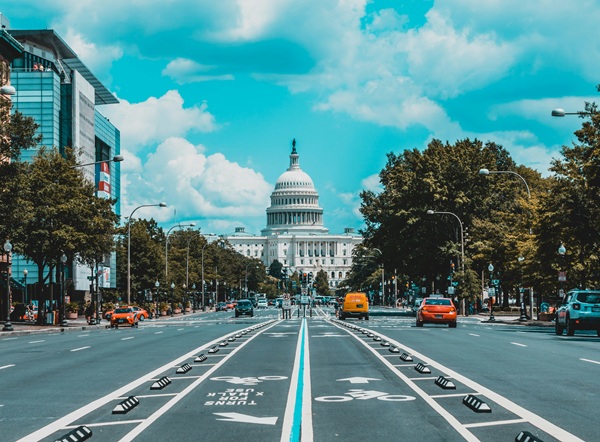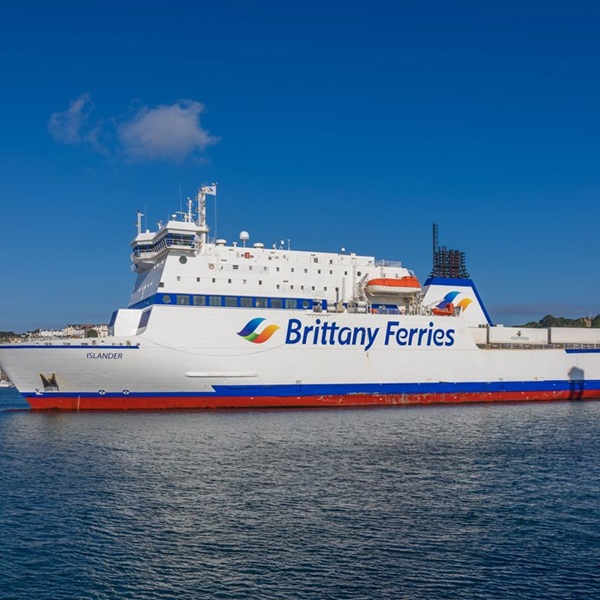1. New UK-US tech and energy deals during Trump’s visit
In a historic moment for transatlantic relations, the United Kingdom and the United States have unveiled a series of major agreements in the technology and energy sectors during President Donald Trump’s second state visit to Britain. The deals mark a significant deepening of bilateral cooperation and signal a new era of strategic alignment between the two nations.
Tech Partnership to Drive Innovation
The centerpiece of the visit is a multibillion-dollar technology agreement aimed at bolstering collaboration between the two countries’ trillion-dollar tech sectors. The partnership will focus on cutting-edge fields including artificial intelligence, semiconductors, telecommunications, and quantum computing.
UK Technology Secretary Liz Kendall hailed the deal as transformative: “Cutting-edge technology such as AI and quantum computing will reshape our economies and societies. This partnership ensures the UK and US remain at the forefront of global innovation.”
The agreement is backed by major U.S. firms, including Nvidia and OpenAI, whose executives joined Trump’s delegation. BlackRock is also set to invest £560 million in British data centers, while CoreWeave, a U.S. cloud computing provider, will announce new UK investments this week.
Golden Age of Nuclear Energy
In parallel, the UK and US have signed a landmark civil nuclear energy deal, dubbed the “Atlantic Partnership for Advanced Nuclear Energy.” The agreement is designed to accelerate the deployment of advanced nuclear technologies and streamline licensing processes, reducing approval times from up to four years to just two.
Key commercial deals include:
- X-Energy and Centrica: Plans to build up to 12 advanced modular reactors in Hartlepool, generating power for 1.5 million homes and creating 2,500 jobs.
- Holtec, EDF, and Tritax: Development of data centers powered by small modular reactors at the former Cottam coal station, valued at £11 billion.
- Last Energy and DP World: Establishment of one of the world’s first micro modular nuclear plants to power the expansion of London Gateway port.
- Urenco and Radiant: A £4 million deal to supply advanced HALEU nuclear fuel to the U.S. market.
- TerraPower and KBR: Site evaluations for Natrium reactors in the UK, each supporting 1,600 construction jobs.
Prime Minister Keir Starmer emphasised the strategic importance of the partnership: “This landmark UK-US nuclear partnership is not just about powering our homes—it’s about powering our economy, our communities, and our ambition.”
Diplomatic and Economic Context
The deals come amid broader trade negotiations, with the UK seeking to finalise reduced tariffs on steel and aluminum. Starmer and Trump, despite ideological differences, have cultivated a pragmatic working relationship. Starmer was the first world leader to secure an economic deal with Trump on global tariffs.
The visit also included royal pageantry, with Trump and First Lady Melania welcomed by King Charles and Queen Camilla at Windsor Castle. A state banquet, military flypast, and cultural initiatives—such as promoting basketball and heritage partnerships—rounded out the diplomatic itinerary.
Looking Ahead
With over £1.25 billion in U.S. investment already announced and more expected, the UK is positioning itself as a global hub for clean energy and advanced technology. The agreements signed this week are expected to deliver thousands of jobs, strengthen energy security, and reinforce the UK-US alliance in an increasingly complex geopolitical landscape.
2. Tariff cuts enhance UK Auto and Aerospace exports to US

A landmark UK-US trade agreement has officially come into force, delivering immediate and substantial tariff relief for the UK’s automotive and aerospace sectors. The deal, hailed as a diplomatic and economic breakthrough, slashes US import tariffs on British cars and aerospace components, unlocking hundreds of millions of pounds in annual savings and safeguarding thousands of skilled jobs across the UK.
Tariff Cuts at a Glance
- Automotive exports: Tariffs on UK car exports to the US have been cut from a punitive 27.5% to a more manageable 10% under a new quota system.
- Aerospace exports: The 10% tariffs on aerospace goods—including engines and aircraft parts—have been eliminated entirely.
This agreement positions the UK as the only country to have secured such preferential terms with the United States, giving British manufacturers a competitive edge in one of the world’s largest markets.
Economic Impact
The tariff reductions are expected to:
- Save UK manufacturers hundreds of millions of pounds annually.
- Support and protect hundreds of thousands of jobs, particularly in industrial heartlands.
- Boost the global competitiveness of iconic British firms such as Rolls-Royce and Jaguar Land Rover.
Prime Minister Keir Starmer described the deal as a “historic moment” for British industry:
“From today, our world-class automotive and aerospace industries will see tariffs slashed, safeguarding key industries that are vital to our economy. We will always act in the national interest—backing British businesses and workers, delivering on our Plan for Change.”
Industry Reaction
The response from industry leaders has been overwhelmingly positive.
Mike Hawes, Chief Executive of the Society of Motor Manufacturers and Traders (SMMT), called the deal a “huge relief” for UK carmakers:
“It immediately slashes the punitive tariffs that brought the US export market to a standstill and threatened the viability of some of the most famous names in British manufacturing.”
Strategic Significance
This deal is part of a broader UK strategy to secure agile, sector-specific trade agreements that deliver rapid, practical benefits. It follows recent deals with India and the EU, aimed at boosting the UK economy by billions over the coming years.
While the agreement marks a major win for auto and aerospace, negotiations continue over tariffs on UK steel and aluminium, with both governments expressing a commitment to progress toward 0% tariffs on core steel products.
3. Flemish UK defence trade mission

Flanders has taken a significant step in bolstering its defence and aviation ties with the United Kingdom through a strategic cooperation agreement signed during a high-profile trade mission to London. The agreement, formalised at the Belgian embassy, marks a deepening collaboration between Flemish SME Euramec and British flight training company JD2E.
Euramec, based in Lokeren, East Flanders, is renowned for its advanced flight simulator technologies. JD2E, a UK-based specialist in flight training, has previously worked with Euramec, but the new agreement cements a more integrated partnership focused on Intelligence, Surveillance, and Reconnaissance capabilities. Under the deal, JD2E will incorporate Euramec’s simulator systems into its training programmes, while Euramec gains access to JD2E’s proprietary software.
The partnership also includes joint marketing efforts and opens the door for Euramec to enter the UK and broader Commonwealth markets. Euramec CEO Bert Buyle revealed that discussions are already underway for a potential project with the Royal Air Force. He anticipates that both companies could see growth of 20–30% over the next two years.
The signing was overseen by Flemish Minister-President Matthias Diependaele, who is leading the two-day trade mission. The delegation, comprising politicians and business leaders, is attending the Defence and Security Equipment International fair at ExCeL London, one of the world’s leading defence exhibitions. The mission aims to showcase Flanders’ industrial capabilities and foster new partnerships in defence and innovation.
Beyond defence, Diependaele is also advocating for scientific collaboration. He is scheduled to visit Cambridge University to promote the construction of the Einstein Telescope in the Meuse-Rhine region, a project that links cutting-edge research with industrial opportunity.
This mission underscores Flanders’ strategic intent to position itself as a key player in European defence innovation, leveraging partnerships with established UK entities to expand its technological footprint and market reach.
4. Business Secretary visits Washington

jorge alcala by Unsplash
UK Business and Trade Secretary Peter Kyle has embarked on his first official visit to Washington, marking a pivotal moment in the UK’s efforts to deepen economic and technological collaboration with the United States.
The visit, which began on Sunday evening, is part of a broader diplomatic and economic strategy aimed at reinforcing the UK-US “special relationship” ahead of an upcoming State Visit. Kyle’s agenda includes high-level meetings with senior White House advisors, tech industry leaders, and CEOs from major corporations, with a particular focus on advancing the UK-US Tech Partnership.
Among the key figures Kyle is scheduled to meet are Michael Kratsios, Director of the White House Office of Science and Technology Policy, and Sriram Krishnan, Senior AI Advisor. Discussions will center on the AI Pillar of the Tech Partnership, a strategic initiative designed to foster innovation and regulatory alignment between the two nations.
Speaking ahead of the trip, Kyle emphasised his commitment to economic growth:
“From day one in the job I’ve been clear that my mission is to drive forward economic growth and to give businesses across the country the opportunities they need to thrive as part of the Plan for Change,” he said.
“My first visit to Washington as Business Secretary is key to strengthening our special relationship as we face global challenges together and building momentum on our Tech Partnership and trade deal ahead of the historic State Visit.”
Kyle’s itinerary also includes meetings with Benito Minicucci, CEO of Alaska Airlines, and Guillaume Faury, CEO of Airbus, as part of efforts to position the UK as a top destination for global investment.
Following his engagements in Washington, Kyle will travel directly to China to continue discussions on secure economic growth with one of the world’s largest economies, underscoring the UK’s global ambitions in trade and innovation.
This visit marks a significant step in the UK’s post-Brexit trade strategy, as the government seeks to solidify its role as a leader in tech, AI, and sustainable economic development on the world stage.
5. Delegation boosts Guernsey–Brittany trade links

In a strategic move to strengthen economic ties with France, a delegation from the States of Guernsey has attended the Forum Économique Breton in Saint-Malo for the first time. Led by Deputy Sasha Kazantseva-Miller, President of the Committee for Economic Development, the visit marks a significant step in Guernsey’s efforts to expand trade, tourism, and cultural exchange with the Brittany region.
The three-day visit included high-level meetings with the President and Vice-President of the Regional Council of Brittany, port authorities, commercial operators, and representatives from the Saint-Malo French Chambers of Commerce and Industry. The delegation also engaged with tourism officials from the Baie du Mont-Saint-Michel area, aiming to explore mutual opportunities in hospitality, food and drink, and construction sectors.
Kazantseva-Miller emphasised the importance of the visit, stating, “Building stronger links with Brittany, and in turn France as a whole, holds so many opportunities for Guernsey both economically and more broadly. The success of the Brittany Ferries contract since its launch has started to demonstrate this, with an additional 38,522 passengers travelling to the island by ferry this summer compared to last, and the vast majority of those being from France.”
The timing of the visit coincides with a surge in ferry traffic between France and Guernsey. Brittany Ferries reported a 59% increase in passengers from Saint-Malo this summer, contributing to a total rise of 38,000 travellers across its Channel Island routes. Guernsey’s share of the Channel Islands market has grown from 20% to over 40% in 2025.
A key highlight of the trip was the delegation’s tour of the Port of Saint-Malo, which is undergoing a €150 million redevelopment. The project includes a new two-storey ferry terminal designed to handle up to 750,000 passengers annually, promising enhanced facilities and improved maritime access.
Kazantseva-Miller described the forum as “a meeting I did not want to miss,” underscoring Guernsey’s commitment to deepening its relationship with Brittany. “We are particularly keen to increase trade between our regions, whether it’s food and drink, construction, or tourism,” she added.
The visit reflects Guernsey’s broader strategy to diversify its economic partnerships and leverage regional forums to promote its interests abroad. With the momentum from the Brittany Ferries partnership and growing interest from French travellers, the island is poised to benefit from closer ties with its continental neighbour.
Featured image matthew henry unsplash







